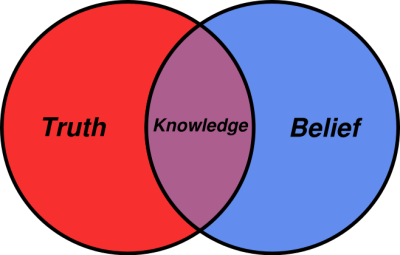“Religious – 1. relating to or manifesting faithful devotion to an acknowledged ultimate reality”
I constantly receive criticism from people who say that my work doesn’t focus on prescriptive aspects of the economy enough. I don’t really know why. I guess people assume I am some heartless bastard who doesn’t care about other people and the problems we confront. As if those who offer prescriptions are necessarily better people or care more about the world. Maybe it’s the fact that I don’t have kids (wait,I’m heterosexual so no, that can’t be it). Just kidding of course (sorry Niall Ferguson).
In all seriousness, I think this is a major problem in economics today. I know there will always be people who claim you can’t separate the normative from the positive in economics (the descriptive from the prescriptive). They’re probably right to some degree. But I do think there’s a foundation of reality from which we should all agree on. For instance, we should all agree that loans create deposits. We should all agree that banks aren’t reserve constrained (ie, the money multiplier is a myth). We should all agree that government spending adds net financial assets to the private sector. We should all agree that government budget deficits increase corporate profits. We should all agree that the US government can’t “run out of money”. We should all agree that the government doesn’t “print money”, but rather redistributes bank money. We should all agree that our monetary system is presently designed around private banking. And on and on.
But even these basic points are still controversial in most economic circles. And that’s because there is no foundation from which economists all agree to work from (something like, say, this). Instead, they poison their work by formulating their world view around a prescriptive view. The normative and positive are so muddied that there’s almost no deciphering between the two. I agree you can’t completely eliminate the gray area. But we can do better than we’re doing. Problem is, most people don’t want to do better because that would require putting away your biases and your economic religion. Which is unfortunate because the world would probably be a better place if we could put aside our prescriptive differences for a few minutes and just try to agree on the basics….
I like this simple diagram below which shows the overlap between the normative and the positive. Beliefs are essentially what we think SHOULD be done with the monetary system while the truth is what we know about the current monetary system. There’s obviously some overlap in the two, but if we really want to improve the prescriptions we need to improve our understanding of the truth. The overlap is where we’ll discover the ideal prescriptions and the best understandings of how to proceed on the policy front. Unfortunately, most of us focus so much on the right side of the image that we neglect the left side. The result is bad policy based on bad understandings.
I don’t have a problem with people who focus on the prescriptive side of things. But I think we need to remain balanced in our approach. And the study of economics probably needs a hefty shift towards the left side of the image in order to fix what is clearly a lot of bad thinking out there. So here’s to hoping we can put aside our biases and economic religions to try to find some middle ground. Unfortunately, I am not terribly hopeful that this can be done….
Mr. Roche is the Founder and Chief Investment Officer of Discipline Funds.Discipline Funds is a low fee financial advisory firm with a focus on helping people be more disciplined with their finances.
He is also the author of Pragmatic Capitalism: What Every Investor Needs to Understand About Money and Finance, Understanding the Modern Monetary System and Understanding Modern Portfolio Construction.



Comments are closed.